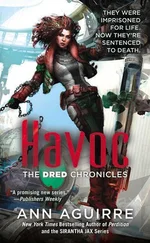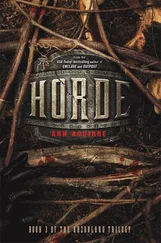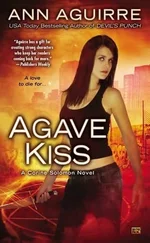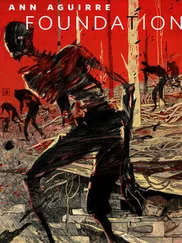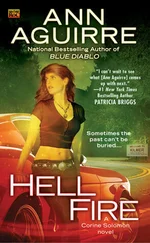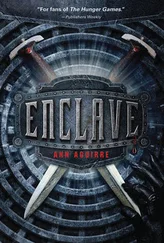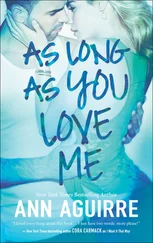“We’ll do that when we get back. It’s time to go.” He stood up and headed toward the lake.
The morning sun warmed my skin as we waited for the boatman. In the distance, I spotted a flat-bottomed lancha churning the water; white spume sprayed in its wake as if it were propelled by fire-extinguisher foam. A large awning shaded the boat, which he piloted from the back. It was a bit battered but seaworthy. This vessel could hold eight more people, but we’d hired a private tour.
“He’s ten minutes late,” Kel said.
That was pretty good. In the city, if I scheduled an appointment with a repairman, I’d be lucky if he showed up on the promised day. Punctuality was an individual judgment more than a social imperative.
“How much is this costing me?” I whispered, as the boatman pulled up. The prow nudged the cement rim gently, and the man leapt onto shore with rope in hand. Steps led down into the launch, making it easy for us to board.
The other man answered—so he understood some English. “Four hundred pesos.”
That was reasonable, thirty bucks or so, depending on the exchange rate. Catemaco wasn’t a big tourist spot, so they hadn’t jacked up the prices. The food probably wouldn’t cost a fortune while we were here, either. Good thing, as the pawnshop took care of Shannon and me, but I wasn’t rich.
I peeled off a couple of bills and passed them over, and the boatman beamed at me. His teeth were very white in a sun-weathered face. “Me llamo Ernesto. Bienvenidos.”
As we boarded, he seemed so pleased, chattering about the sights he would show us, including Monkey Island, that I couldn’t bring myself to cut him off. So we listened while he practiced his English until he came to a word he didn’t know, and then he substituted in Spanish.
Obligingly, I supplied the word for him. “Monkeys.”
I always found it funny that there were two words for monkey in Spanish: chango and mono . I’d asked if one meant ape, but though chango was more slang, it still meant monkey. Spanish was weird that way: two words for monkey, and esposas meant both wives and handcuffs. That said a lot.
Ernesto had a thick accent. “You’re going to love the Monkey Island.”
I didn’t share his certainty. Monkeys struck me as sinister, falling under the category of things that looked almost human, but weren’t, really, like dolls and clowns—all creepy in my book.
Shannon looked so small from this distance, capped with a shock of black hair; she waved from the balcony as we got under way. I waved back and took a seat in the middle when the boat accelerated. Ernesto was still talking. We would stop first at the city market, he said, and for a mere fifty pesos more, he would disembark to buy fresh fruit for us to feed the monkeys.
I glanced at Kel, who murmured, “It might be best if we let him give us the regular tour in addition to going to see Nalleli. That way, our destination isn’t so singular.”
And we wouldn’t stand out in his memory if someone questioned him later. It made sense, though I wasn’t keen on the delay. There must be other tourists who asked to visit Nalleli. Otherwise, I wasn’t sure how we’d find her.
“Do we know which island she’s on?” I asked in a whisper.
“I’m sure he does,” he answered, tilting his head back toward our guide.
It made sense. The island witch might be the only true curandera —or bruja , depending on the type of magick she practiced—in the area, though Catemaco was famous for its witches and warlocks. But tourism dictated that most were performers and charlatans more than true practitioners. I needed someone with real power, and I hoped Tia knew what she was talking about.
The boat gathered speed, leaping out toward the middle of the lake. Wind whipped across my face, and Butch popped his head out of my bag. I clutched him to my chest. If he got overly excited and jumped, I’d never see him again in a lake this size. It was enormous .
Buildings on the shore looked strange and exotic—as we neared the zócalo , a gold cathedral edged in red caught my eye. It rose above the palm and mangrove trees, and the brightpainted boats that crouched at its feet seemed as supplicants to the stately structure. We passed an orange and white building on the way to the mooring place. The reason it drew a second look? On the concrete wall below, it read, HOTEL DEL BRUJO, in black block letters, and the architecture reminded me of an old houseboat.
Shortly, Ernesto pulled up to a shallow point in the lake, not a dock so much as a sandbar. I gave him fifty pesos, and he leapt lightly down into the water. The boatman waded ashore, leaving Kel and me to watch the old woman doing her laundry nearby. She grinned at us from a nearly toothless mouth—and for a moment I was afraid she was going to come over begging. That was one of my least favorite parts of living in Mexico, because I never knew how much to give. However, with Kel at my side for protection and Butch in my lap to read the nuances of the situation, we’d be fine. Sopping clothes in hand, she came over to make small talk—and she didn’t ask for money.
Maybe she had cataracts, because she didn’t appear afraid of Kel, though she directed her greeting to both of us. “¿Es un buen día, no?”
I gazed up at the blue sky. It was, actually. I hadn’t noticed because of the fear and necessity driving me. The gentle slosh of the water made the lancha rise and fall beside the sandbar, soothing me.
He answered in his precise Castilian Spanish. As it had been with Tia, his manner was gentle and almost courtly. “Sí. ¿Como estáis vos?”
“Muy bien, gracias . ”
She chatted with him as she washed. A bag sat beside her on the shore, clothing spilling out upon the sand. She used a bar of soap, but it wasn’t the regular kind; I’d seen it in the cleaning aisles for use in laundry. You could shave it for use in machines or rub it on stains for washing by hand. I couldn’t see that the lake water was doing her delicates any good, but it was doubtless better than nothing. I wondered if she lived nearby.
“Do you know the island witch?” Kel asked eventually.
Ah. Clever.
“Nalleli?” It seemed she did. I suspected she knew most things around here. “Sí . ”
“¿Donde vive?”
The old woman turned and gestured, giving complicated directions. I wasn’t sure I’d be able to find the spot, based on what she was saying, but Kel appeared to follow it all. He smiled and thanked her. By the time Ernesto returned with pineapple, papaya, and cantaloupe for the monkeys, the washerwoman was giggling like a young girl.
She stepped back as Ernesto powered the boat in reverse, and then we headed back out onto the lake. Since it was relatively early, we saw a number of fishermen trying their luck—and one man asleep in his boat with a hat drawn across his face. Imagining what his wife would say when he came home empty-handed put a smile on my face.
This reminded me of a trip I’d taken with Chance. We’d crossed the channel by boat, Dover to Calais. To a girl from the Georgia backwoods, he’d seemed so impossibly charming and urbane, and I had to work to make myself worthy of him. I suspect he sensed that insecurity and it gave him leverage. It saddened me, thinking about that girl clutching his hand with each bounce of the waves. He’d wanted to be all things to me, and for a while, I permitted him to be.
After the way he’d left me in Kilmer—and no word from him since—I didn’t love him anymore. But some exes carved out space in your heart that could never be filled.
Читать дальше



